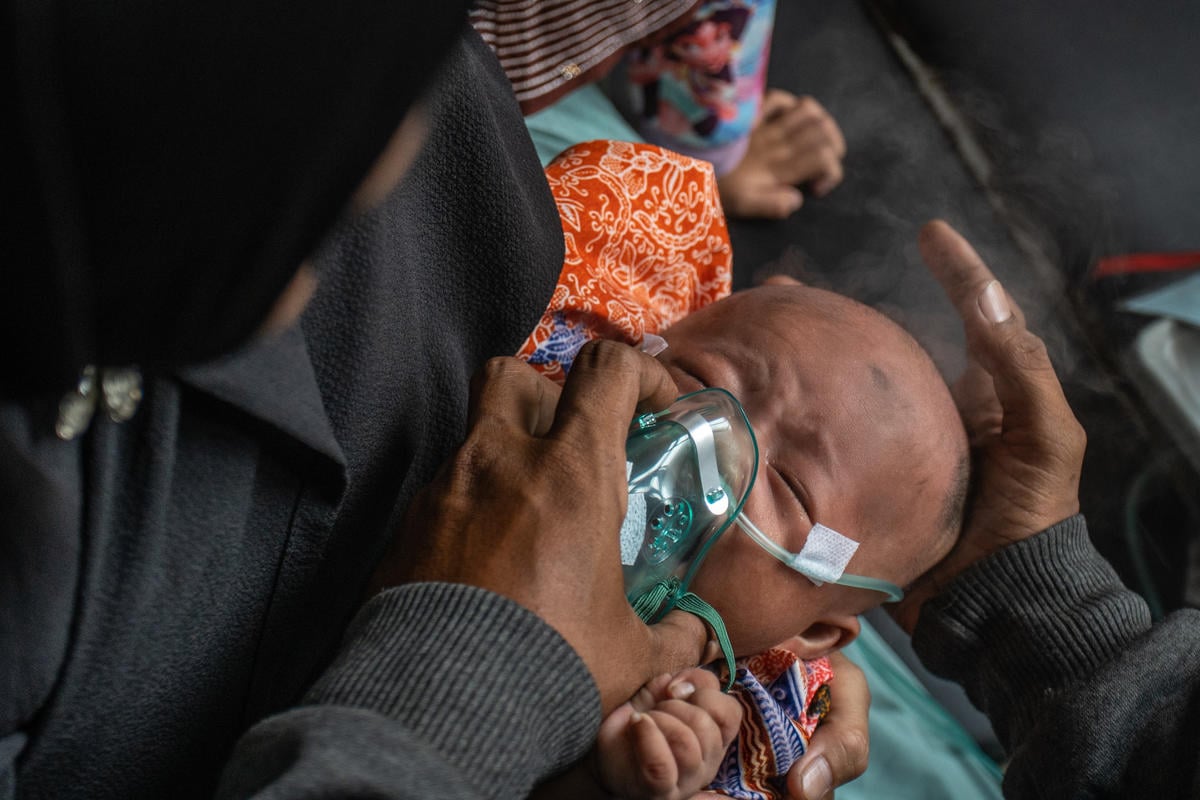The island of Borneo was once described as pristine and lush, renowned for its natural beauty and biodiversity. Often called as the lungs of Southeast Asia, it now depicts a tragic tale of greed and destruction.
I was born here and spent half of my life in Indonesia’s third-largest island. Borneo is a treasure chest teeming with biodiversity, one of the highest in the world. Its natural environment also stores an enormous amount of carbon.
It is no wonder then that companies saw Borneo’s vast potential and descended upon the island to start their ventures. Unfortunately, their business models were focused on infinite growth and prosperity, not on environmental sustainability.
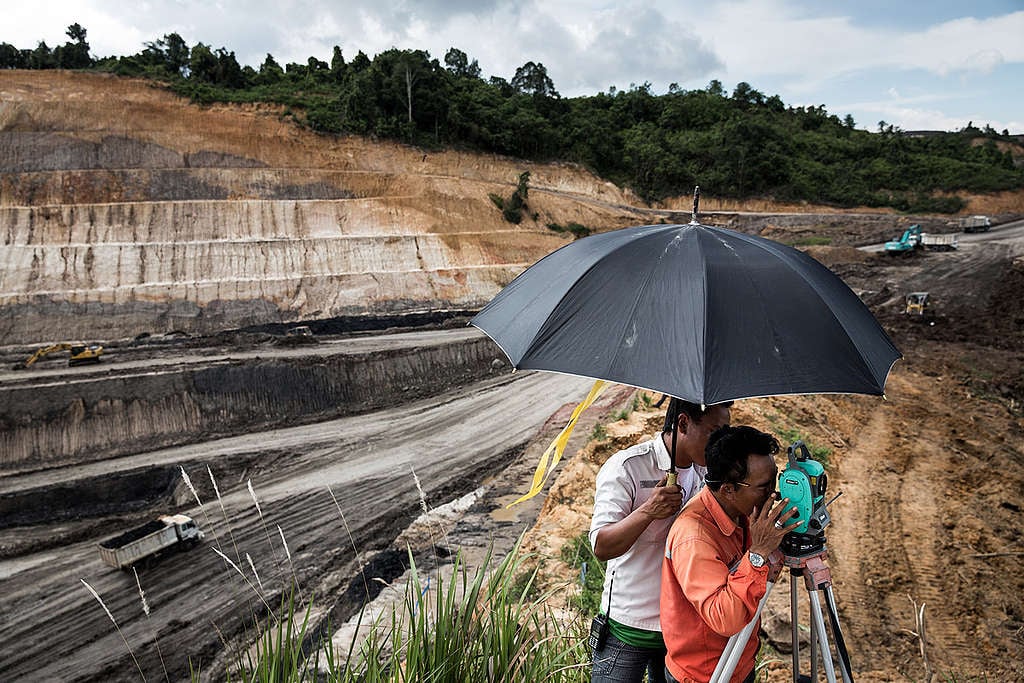
A history of corporate greed and government negligence
The province of South Kalimantan covers an area of 3.7 million hectares. Around 1.7 million hectares, or 33 percent of the area, have been allocated for coal mining concessions. Permits for palm oil plantations cover an area of 618 thousand hectares, or 17 percent of the area- a small portion was allocated to pulp concessions.
At least 30 percent of Borneo’s tropical forest have been destroyed over the last 40 years, including its carbon-rich peatlands that can store twice as much carbon as forests. Logging, mining, and plantation development, especially from palm oil plantations have contributed to massive deforestation and impacting the island’s orangutan population. To date, Borneo has lost nearly 150,000 orangutans over the last 16 years.
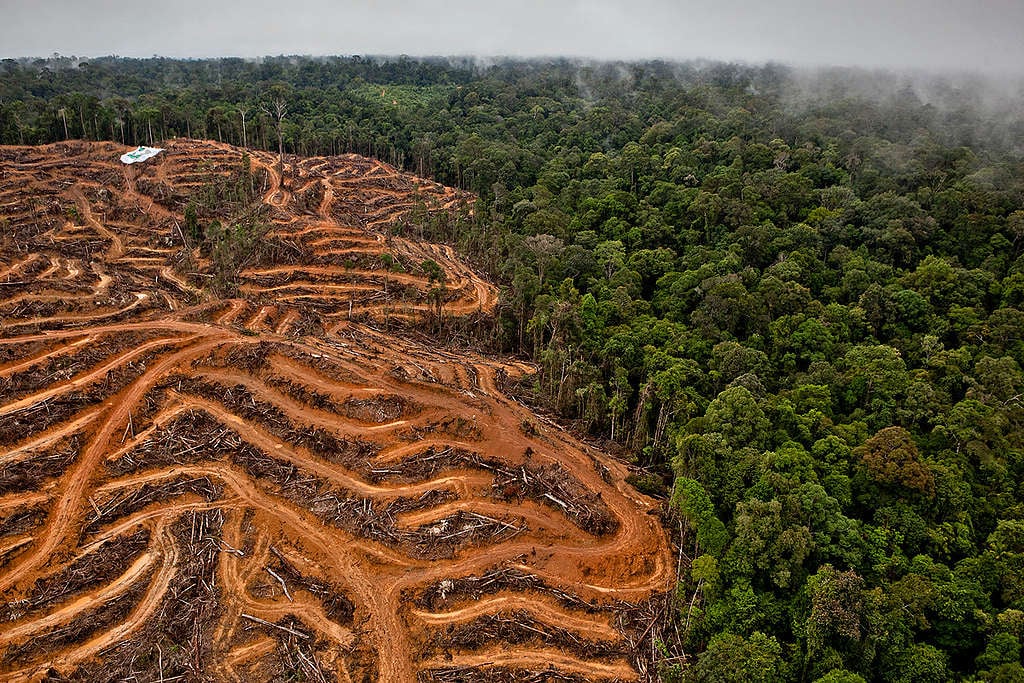
Indigenous communities have also been severely affected and displaced. The Dayak people, one of the island’s original inhabitants, heavily rely on the forest for their livelihood. Now, their culture and way of life are threatened because of corporate greed and lack of government support.
The devastating fires that occurred in 2015 and 2019 are forever etched in people’s memory, resulting in almost 4.4 million ha of forests and peatlands burned. The plantation sector bears considerable responsibility for the fires between 2015 and 2019, with 27 percent of the mapped burned areas in 2019 located in palm oil and pulpwood concessions.
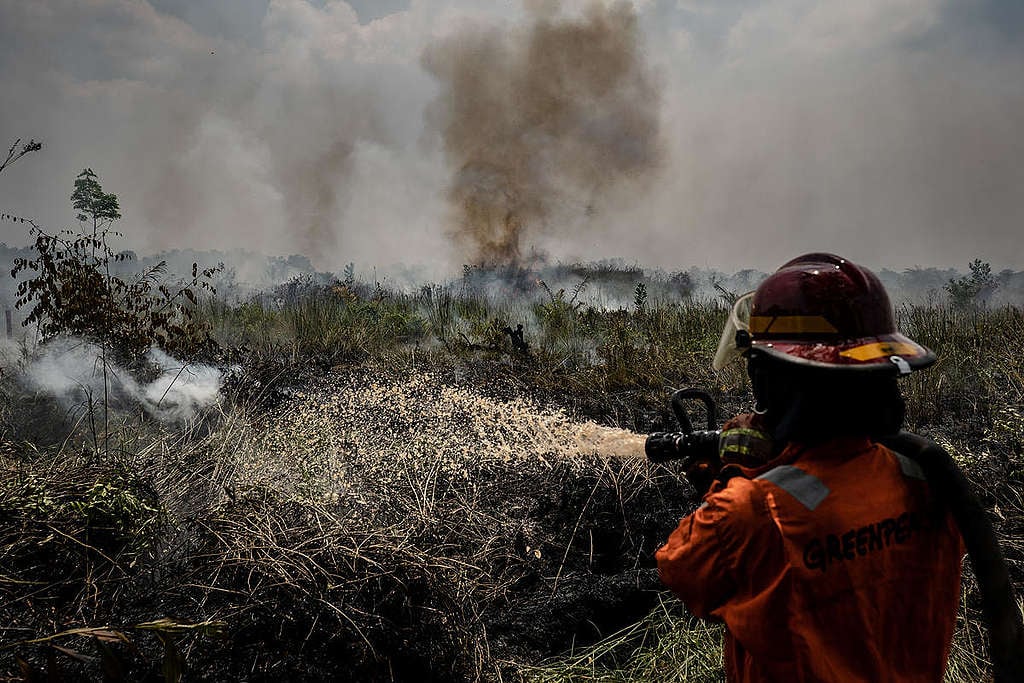
A climate emergency in Borneo
At the start of 2021, amidst the Covid -19 pandemic, Borneo found itself in the news with the widespread floodings in South Kalimantan. Unlike the recent devastating earthquake in Sulawesi, the floodings were triggered by a series of events that could have been prevented by the Indonesian government.
Throughout the years, the government continued to issue company permits in a haphazard manner resulting in Borneo’s watershed areas being severely deforested. With very little forest cover, South Kalimantan is highly susceptible to floods given the amount of rainfall that occurs during mid January. Heavy rains triggered landslides and caused heavy flooding in at least 10 districts, claiming 20 lives and affecting more than 300,000 people according to the latest National Disaster Management Agency’s report.
President Joko Widodo, who recently visited the impacted areas, stated that the high rainfall was to blame for Borneo’s devastating floods, the worst one to hit the province in 50 years.
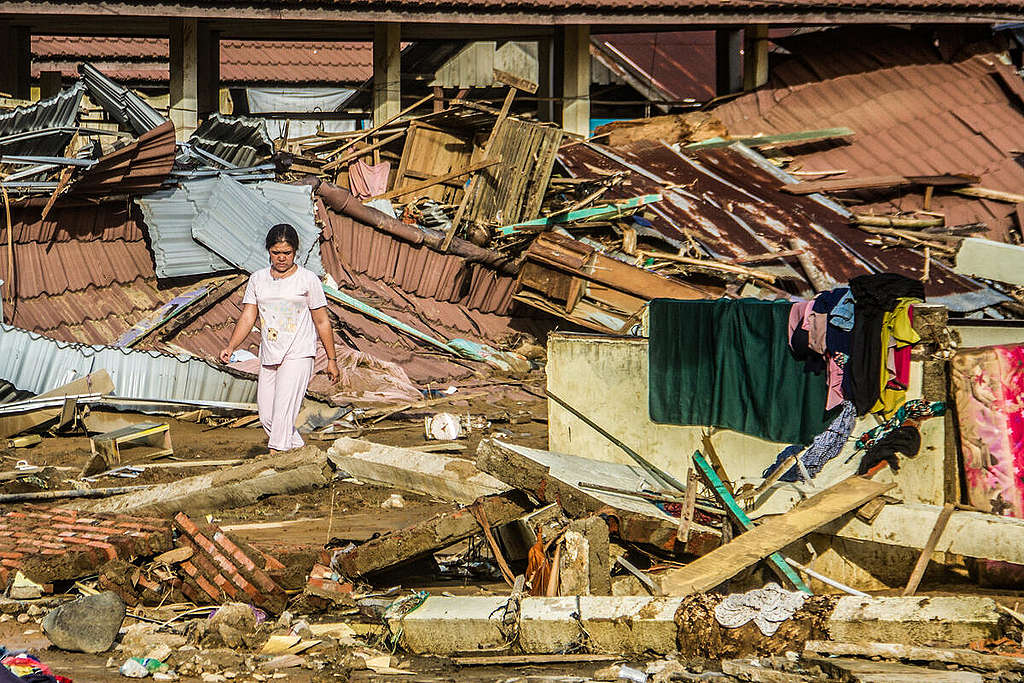
This statement is a confusing narrative often used by the government to escape responsibility for forest fires and floods. Clearly, it is more convenient to blame the weather than to take stock of what has happened to Borneo. Nevermind that many companies operating in Borneo have little or no regard for the environment and often take advantage of the province’s land and forest conversion. It is important to note that most of the palm oil and mining concession permits are concentrated in areas where severe flooding occurred.
In all of this, the Indonesian government chose to ignore the environmental crisis despite Borneo being highly vulnerable to climate change impacts.[1]
What is obvious is this: the government failed to implement spatial planning as well as forest and environmental protection policies, while allowing companies to take advantage of this situation
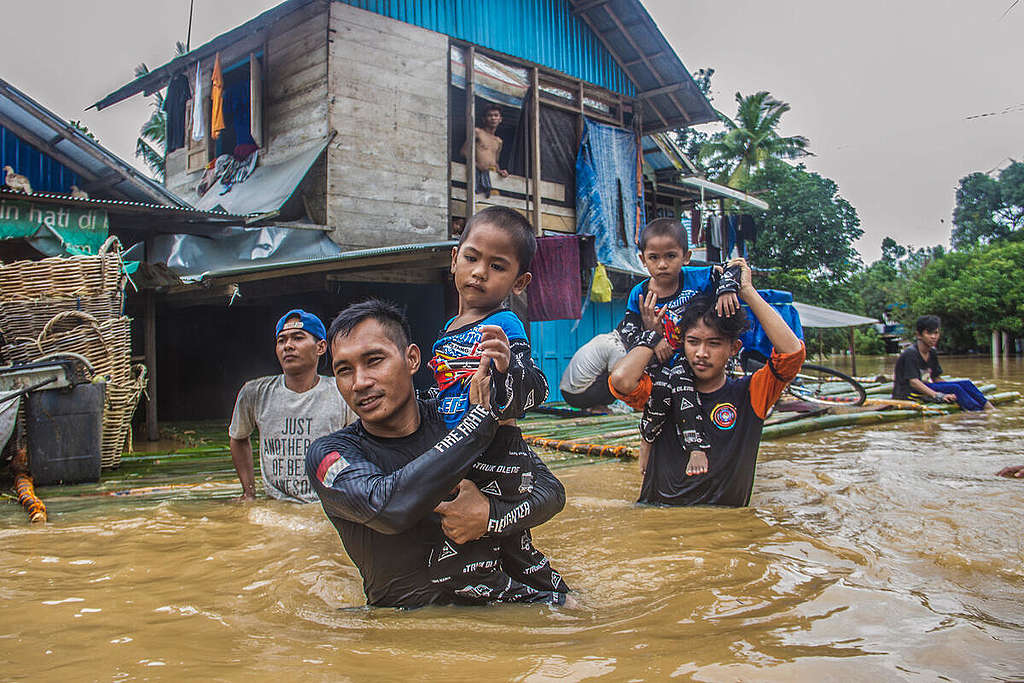
The oligarchy’s interests have effectively weakened the state’s function by depriving the public of their rights, namely the right to a healthy environment regulated in the constitution and the democratic rights. The floods occurred after the government issued a controversial policy- passing the Mining Law and granting special privileges to mining entrepreneurs. [2]
The new Omnibus Law, hastily passed by the government, eliminates many articles on environmental protection. This now opens up Borneo to future disasters. [3] What is most alarming is the removal of the 30 percent minimum requirement needed to protect the watershed’s carrying capacity. This will lead to more forest conversion, granting permits to palm oil, mining and other concessions.
A need for a green and just recovery
All my life, I have been campaigning to save the environment and my beloved Borneo. In 2015, I took part in a people’s initiative- we filed and won a lawsuit against President Jokowi and five ministers for their negligence in handling the forest fires and haze. But this is not enough. We need more people to remain vigilant and pressure the government and companies to change the current economic model that relies on the destruction of nature for economic growth.
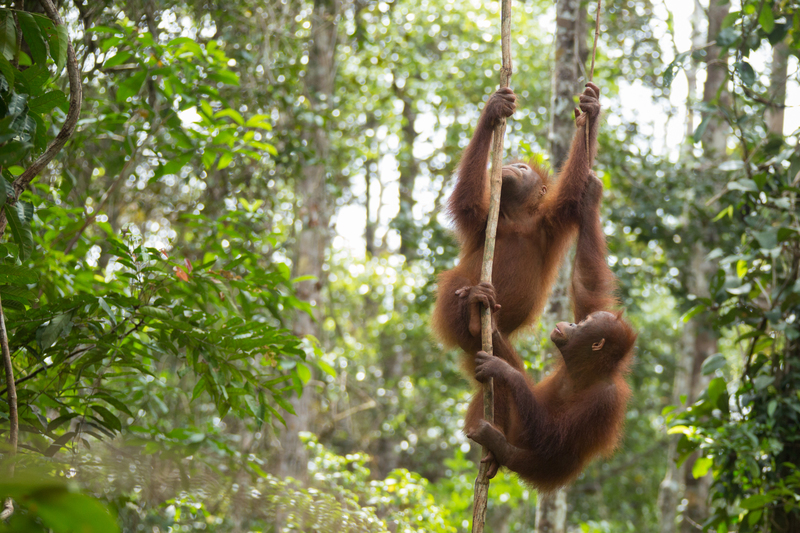
Despite the social distancing, let us be united to protect Borneo. We must stand together against this destructive and unjust system if we are to weather natural disasters and the climate emergency.
Public health and planetary health are closely linked and must be handled together. We appeal to both the Indonesian government and the business sector to prioritize people and the planet as they rebuild the economy and society from Covid-19. Indonesia must invest in Renewable Energy and shift away from fossil fuels.
Above all, emphasis must be given to protect Indonesian forests- change current agricultural practices and radically redesign our cities, including transforming land-based industries that destroy our forests and peatlands. Failure to do so will have devastating consequences, not just for Indonesia but for the rest of the world. We must protect Borneo because our lives depend on it.
Arie Rompas is the Forest Campaign Team Leader in Greenpeace Indonesia.
NOTES:
[1] The relationship between deforestation and changes in local climate was most pronounced in watersheds in southeast Borneo, which have lost 40%–75% of their forests since 1973. These watersheds also had a significantly higher frequency of temperatures above 31 ◦C.
Watersheds in north and northwest Borneo, which have lost 5%–25% of their forest cover, maintained a more stable climate with a similar distribution of mean and extreme warm temperatures between forest and modified forest areas. Watersheds with >15% forest loss had a >15% reduction in rainfall. This situation concluded that the loss of forest in Borneo has increased local daily temperatures and temperature extremes, and reduced daily precipitation.
[2] By exempting royalty payments of up to zero percent, including providing guaranteed business permits for life for mining companies that add value and remove maximum boundaries, so that they can freely expand and increase their production capacity. The mining companies that benefit are mostly operating in the South Borneo region, and their owners are connected to oligarchs in Indonesia.
[3] The previous Forestry Law required the total forested area within each river basin and/or island to be maintained at 30% of the total land area. This was to minimize disturbance to the water system, and to prevent floods, erosion, sedimentation and water shortages. This requirement has been removed by the Omnibus Law.



